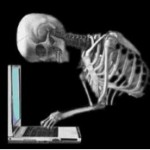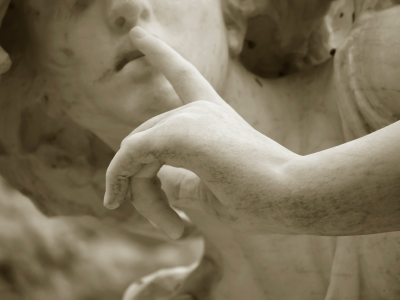 The public sharing of one’s last thoughts is a way to acknowledge that the end is near, but it also destigmatizes death for others, said medical experts who work with terminally ill patients.
The public sharing of one’s last thoughts is a way to acknowledge that the end is near, but it also destigmatizes death for others, said medical experts who work with terminally ill patients.
In the Internet age, many people reflect on their lives through video, personal blogs and larger websites such as CaringBridge.org, where people who have major health events connect and share online.
“What we’re seeing over the last decade is a movement from a culture that was very closed about death,” said Dr. Chris Feudtner, research director of Palliative Care Services at the Children’s Hospital of Philadelphia in Pennsylvania.
A cultural shift has occurred, he said, referring to columnists and Randy Pausch, a computer science professor at Carnegie Mellon University, who discussed their impending deaths with frankness. Pausch’s last lecture, urging students to fearlessly pursue their dreams, went viral on YouTube in 2007, getting more than 11 million views.
Their line of thinking may be, “I’m still alive. I don’t want to be closed. I want connection. I want to be able to share what I’m learning on this journey,” Feudtner said.
“We all tend to be open via video, blog or Facebook about what we do every day. It’s hardly surprising that openness extends to people’s last days or weeks,” said Dr. David Cassarett, author of the book “Last Acts,” about end-of-life decisions.
Even Facebook allows you to designate a friend or family member as a “legacy contact.” If you want to have your account memorialized after you die, this person basically serves as the executor of your Facebook account by managing your profile and can update your cover photo and profile photo, post information and accept new friend requests.
Managing your online identity for posterity is definitely a growing market opportunity. Facebook recently began offering memorialized profiles for members of its social network that have passed away.
How do you want to live your life on line after Death?








MY digital address book lists 2,743 contacts. This is not because I’m popular or extroverted; I’m neither. It’s because this collection of names stretches back two decades, the oldest contacts tracing to a 1996 Palm Pilot and preserved through transfers involving more devices than I care to remember.
It serves as a reminder and my virtual history log of people I have come across and felt important enough to log into my directory. And, from time to time I come across those entries and find some who are now dead.
I take time to delete one or more of the entries that I cannot remember the reason why they are there. But not the ones for the deceased. Those I keep.
To erase those names would feel like an attempt not just to erase these people, but to erase some part of myself. Perhaps these reminders will in some way make me do a better job with all those other contacts, over the course of whatever life we have left. Even if that proves to be wishful thinking, I’d rather live with these entries than make them disappear. I have decided to carry in some sense a trace of their existence. To me, that sounds like something worth keeping. What I’ve lost is part of who I am. So is what I choose to save. So I walk around with my digital cemetery and reflect from time to time on those that were once with me.
As always Dr. Jeff. Thank you for your comments and poignant perspective.
I also keep my deceased contacts. They serve as my memory and a sort of tribute and legacy for those that I have come to know and lost. My heart does a little skip whenever I come across their name as I scroll down my list. I miss each and every one of them.
Ditto. It feels too cold and permanent to hit the delete button.
I, too, cannot remove deceased names from my iPhone. I have tried numerous times, and once came so close that I dropped my phone with a gasp, as if I was somehow about to kill them all over again. When I scroll through my contacts and see their names, I think about what I would say if I were to call them today, which gives me the chance to briefly imagine them alive, waiting for me on the other end of the phone.
I approach from a different perspective the dilemma presented in “My Digital Cemetery.” I live in fear that when my time comes, my husband and children will turn immediately to my bloated iPhone contacts to plan a memorial service. My suggestion for the limitless address book contacts we collect over the years, which we lack the time, energy and/or desire to weed, is a check box when we create new contacts that simply states, “Don’t contact when I’m dead.”
Ha….let’s hope they can’t leave us a message.